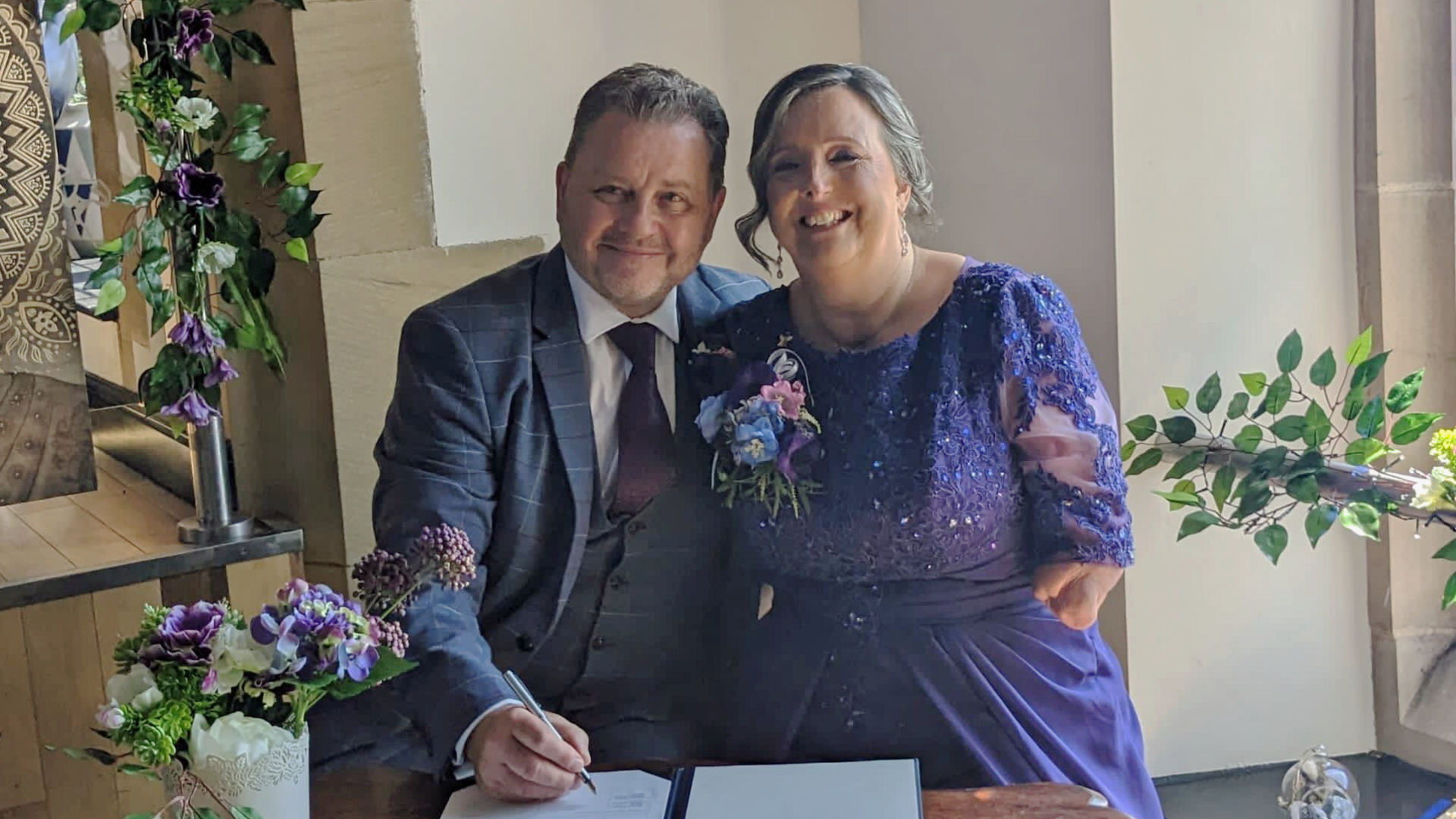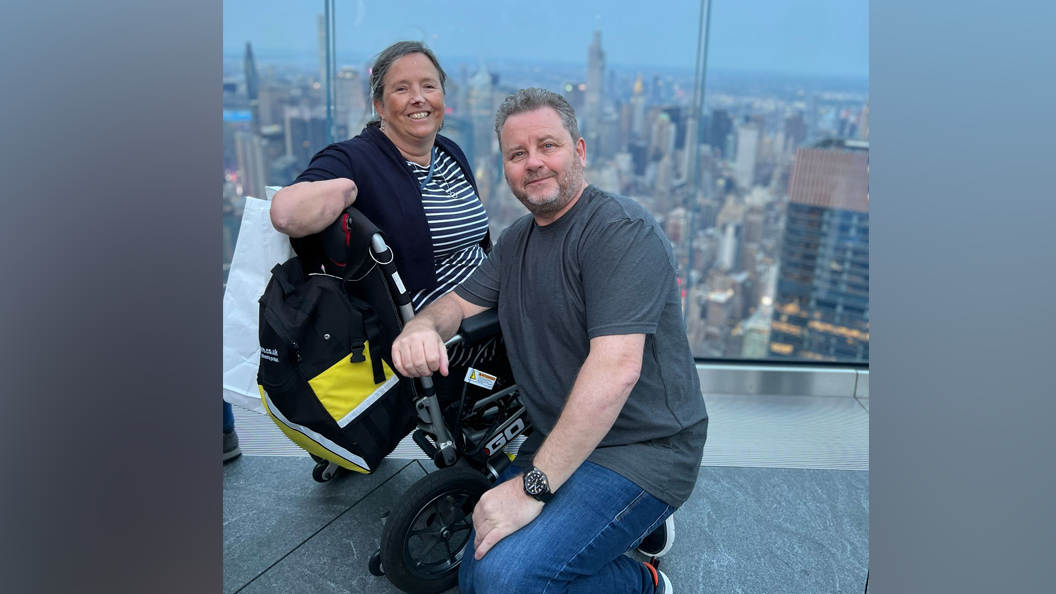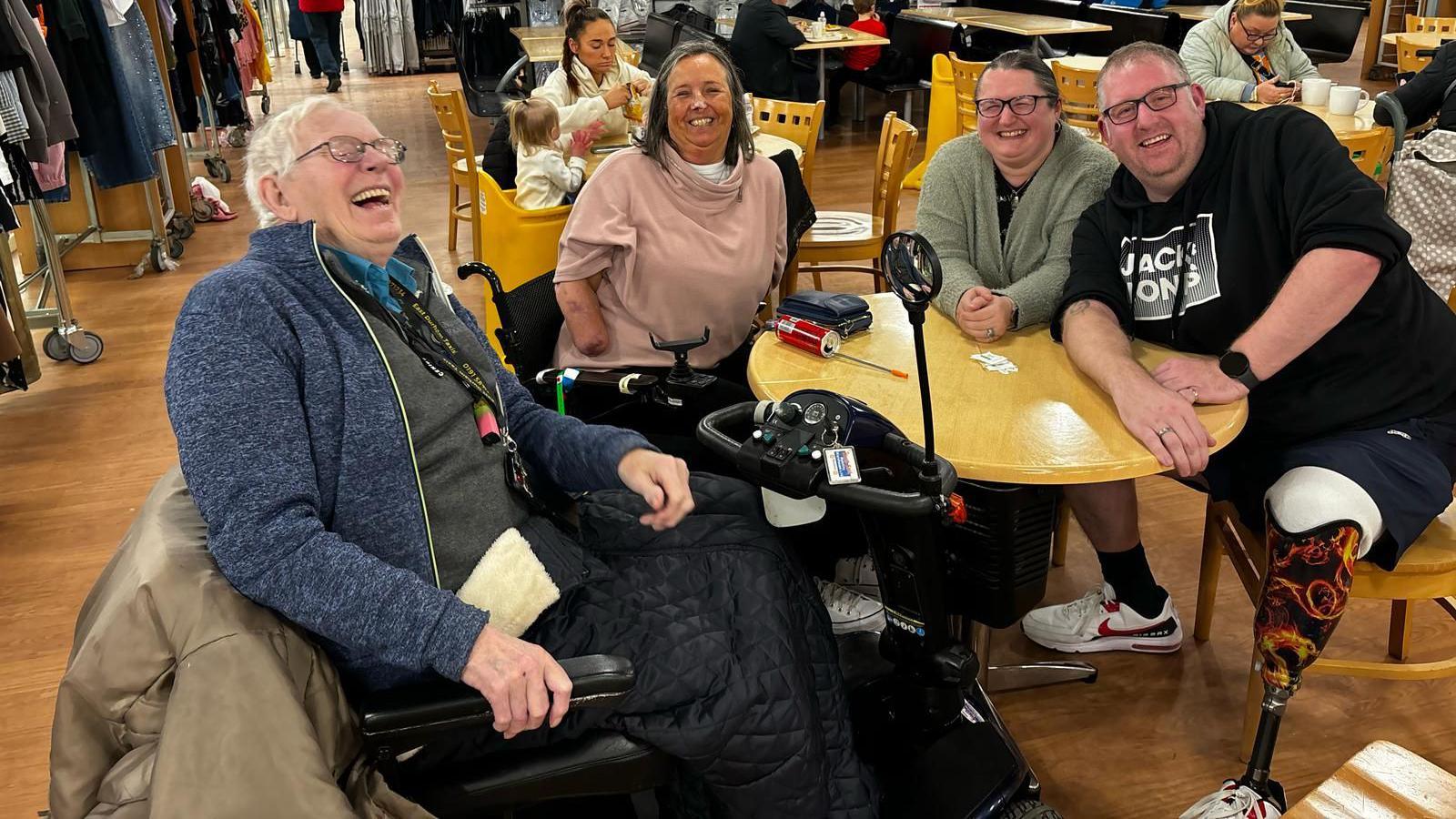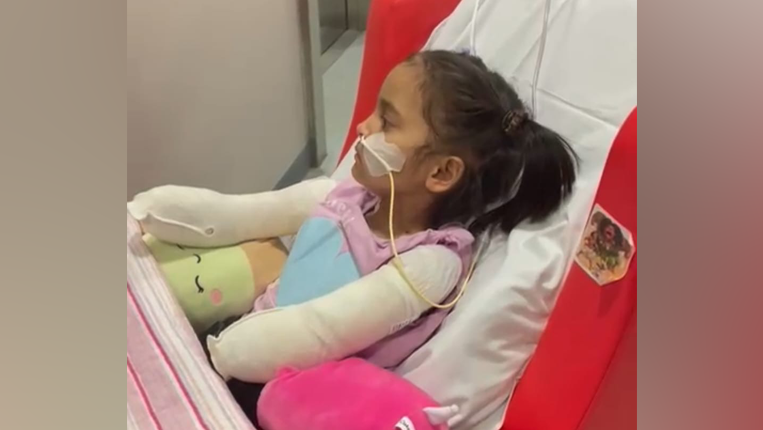'Quadruple amputation wasn't going to ruin my wedding'

David and Allison Friday married after she built up the strength to stand for long periods of time
- Published
A meningitis infection led to Allison Friday's quadruple amputation aged 55, but she was determined to walk down the aisle and stand with her partner as they said their vows. Facing a lack of support groups in north-east England, the couple then set up their own to help amputees and their families.
"When we decided we were going to get married, I went in and said, 'Okay, I want to be able to walk down the aisle without any sticks or anything else'," Allison Friday said about her wedding with David.
She ended up walking down the aisle twice in 2023 - once at the register office and once again at the venue in Hartlepool.
"I had some wonderful rehab physios," she said.
They would get her to stand and then play music or have a chat about the day, to help make the struggle to build up her strength more manageable.
"We slowly built it up to the point where I could do it."
And the result: "It was a lovely, lovely day and it was very romantic day."

Allison Friday's lower limbs were amputated following a meningitis infection
Ms Friday, who lives in Hartlepool, got viral meningitis in 2020 which, in turn, triggered sepsis.
"I went from feeling burnt out to induced coma, and not expected to live through the night, in just over 24 hours," she said.
She does not know why she lived.
"Whether you want to call it, luck, fate, God, incredible NHS, doctors and nurses, whether it was my conscious choice or subconscious choice not to die, I have no idea."
While she was in hospital, she had vivid dreams as she drifted in and out of consciousness.
She remembered dreaming she was a stand in for Queen Elizabeth. And sometimes she was on a speedboat dressed in full latex, makeup and stiletto heels.

AmpuTea Time is a social group for amputees and their families
Ms Friday spent 14 months in hospital. Her arms had to be amputated below the elbow and her legs below the knee.
"My arms and legs had just gone black, like wooden sticks," she said.
She went through a grieving process, but her partner was her "biggest cheerleader".
'Someone who understands'
They needed each other because, to their shock, they could not find local support groups.
So, after years of grappling with the idea, the couple founded AmpuTea Time for amputees and their families in East Durham and Teesside.
The experience can be "very socially isolating", Ms Friday said. When people attend meetings it is like "a burden gets taken off their shoulders".
"The idea of AmpuTea Time was always that it was a safe place.
"What they need is somebody who understands and who doesn't judge."
Whether someone has been an amputee for four months or 40 years, they could still share a useful tip "because everybody's journey is different".
The Fridays also responded to calls from the family of five-year-old Stockton girl Saffanah, who organised a talk in their community to help people come to terms with her quadruple amputation.
She lost all four lower limbs following a bacterial meningitis infection earlier this year and Ms Friday said she wanted people to know that it could "happen to anybody".
Follow BBC North East on X, external, Facebook, external, Nextdoor and Instagram, external.
Get in touch
Do you have a story suggestion for BBC North East & Cumbria?
- Published13 April
